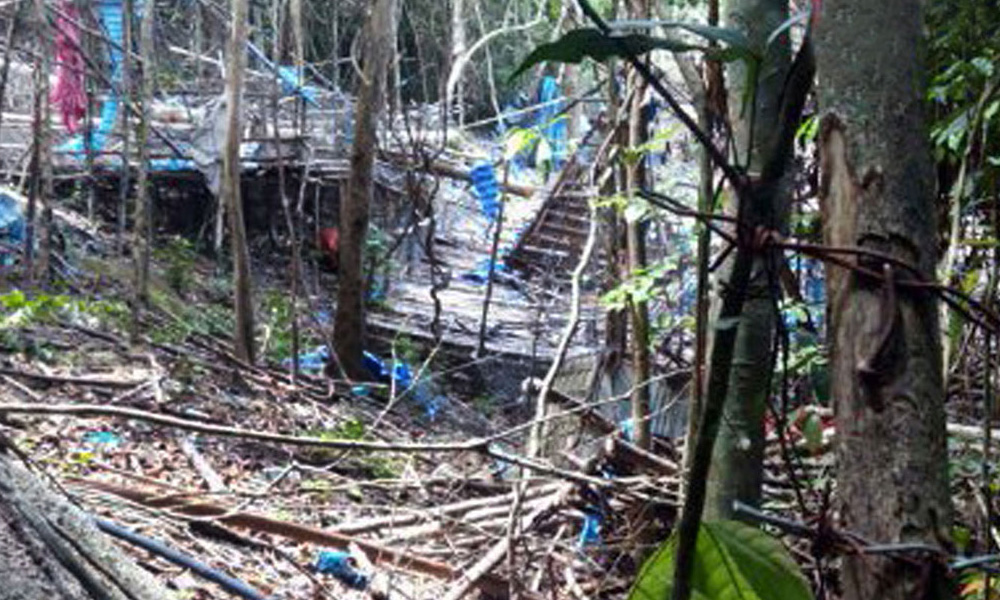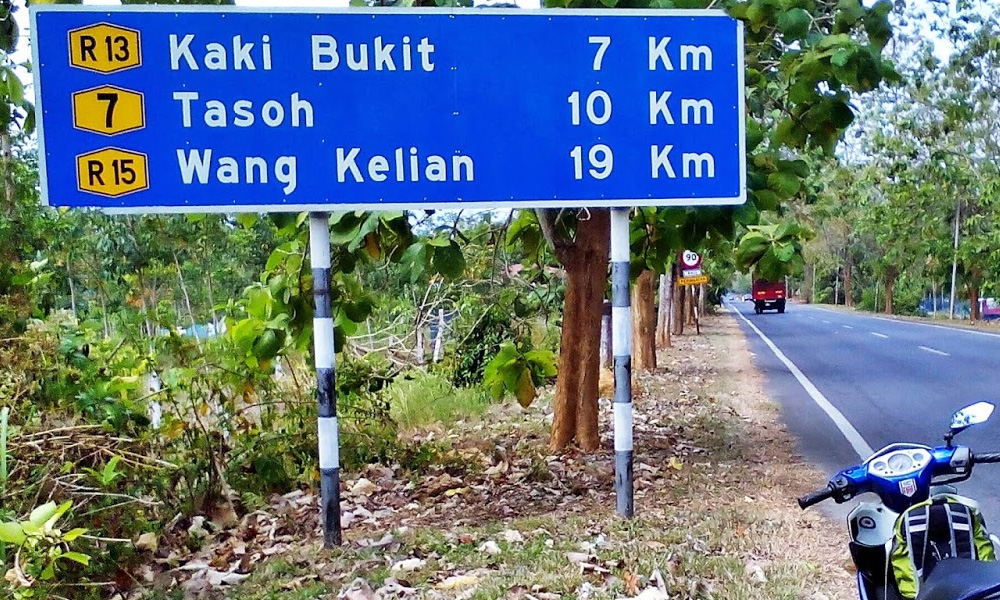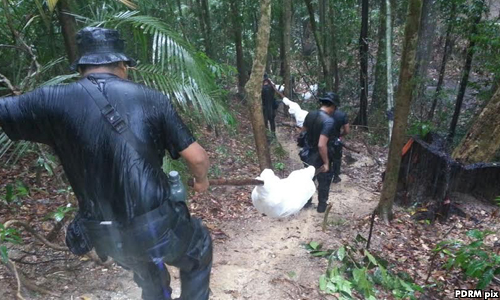Human trafficking syndicates along the Thai-Malaysian border remain active despite renewed attention on the illegal trade, an English daily reported today.
Sources told the New Straits Times that human trafficking syndicates charge a fee of between RM2,500 and RM3,500 to smuggle immigrants, primarily from Myanmar and Bangladesh, over the border.
“The syndicates are willing to face the risk of arrest because of the profit. From the border, the illegal immigrants will be ferried to destinations such as Kuala Lumpur and Pahang.
“The traffickers will bring in illegal immigrants, mostly from Myanmar and Bangladesh, via Sungai Golok and move along laluan tikus (rat routes) before sending them to their next destination in a car or van,” said the source.

The source also said that the syndicates often switched between the approximately 150 laluan tikus along the Kelantan-Thailand border to confuse authorities.
Kelantan Border Security Agency commander Mohd Asri Yahya told NST that about 15 immigrants are trafficked over daily by these syndicates, which are made up of Malaysian and Thai nationals.
“These syndicates will use isolated areas between Panglima Bayu and Rantau Panjang here as entry points.
“We believe that the syndicates have doubled their illegal human cargo through Sungai Golok during the recent floods,” he said.
Human trafficking across the border came back into the spotlight again recently after NST published a report titled “Was there a cover-up in Wang Kelian?”, which referred to the 2015 discovery of mass graves in Perlis.
In May that year, Malaysian authorities were alerted to the human trafficking camps and mass graves by their Thai counterparts, which eventually led to the discovery of 139 graves and about two dozen interim "death camps".

The NST report alleged a subsequent cover-up, which involved destroying evidence, as well as redacting reports and other documents during the course of the investigation.
Yesterday, Bukit Aman responded to the report, and confirmed that the then Perlis police chief had ordered the “death camps” in Wang Kelian to be destroyed.
“It was not necessary for us to preserve the area (or) not to destroy the camp because the assessment of the case then was of immigration offences.
“The main intent of the destruction of the camp was not for it to be used as a base for migrants,” the police said in a statement.
Bukit Aman also reiterated that four individuals have been convicted in relation to the case under the Anti-Trafficking in Persons and Anti-Smuggling of Migrants Act 2007, and added that 10 Thai and one Bangladeshi suspects were on the loose.

Local civil society and human rights groups have bemoaned the perceived lack of police action in the aftermath of the Wang Kelian discovery, especially compared to the spate of arrests and convictions on the Thai side of the border.
Last Thursday, the Human Rights Commission (Suhakam) affirmed that it has received no information from the Home Ministry to assist their own investigation into the case, and said it would seek the cooperation of the National Human Rights Commission of Thailand instead.
Both the Malaysian Bar and Lawyers for Liberty have called for a royal commission of inquiry to be established to investigate the mass graves and subsequent cover-up of human trafficking activities.

